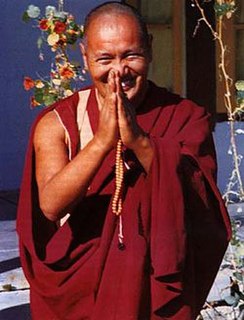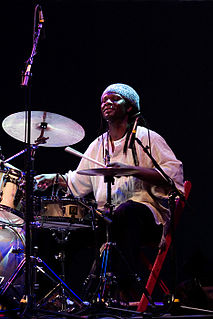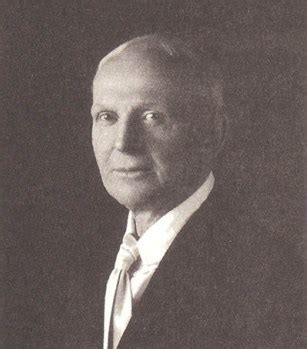A Quote by Jiddu Krishnamurti
Love is not of the mind, it is not in the net of thought, it cannot be sought out, cultivated, cherished; it is there when the mind is silent and the heart is empty of the things of the mind.
Related Quotes
The mind always functions in an eccentric way, the mind is always an idiot. The really intelligent person has no mind. Intelligence arises out of no-mind, idiocy out of the mind. Mind is idiotic, no-mind is wise. No-mind is wisdom, intelligence. Mind depends on knowledge, on methods, on money, on experience, on this and that. Mind always needs props, it needs supports, it cannot exist on its own. On its own, it flops.
In Japan we have the phrase, "Shoshin," which means "beginner's mind." Our "original mind" includes everything within itself. It is always rich and sufficient within itself. This does not mean a closed mind, but actually an empty mind and a ready mind. If your mind is empty, it is always ready for anything. It is open to everything. In the beginner's mind there are many possibilities; in the expert's mind there are few.
What you call the psychic being is the mind of the vital. The heart is the seat of this mind. And this mind is the essence of the senses. It receives things from outside, acts upon things that are outside - knows, gives consent, takes interest in them. But this mind cannot be the Ishwara, but it is the knower, the giver of the consent.
The mind is the seat of perception of the things we see, hear, and feel. It is through the mind that we see the beauties of the earth and sky, or music, of art, in fact, of everything. That silent shuttle of thought working in and out through cell and nerve weaves into one harmonious whole the myriad moods of mind, and we call it life.
We have two main instruments: the mind and the heart. The mind finds it difficult to be happy, precisely because the mind consciously enjoys the sense of separativity. It is always judging and doubting the reality in others. This is the human mind, the ordinary physical mind, the earth-bound mind. But we also have the aspiring heart, the loving heart. This loving heart is free from insecurity, for it has already established its oneness with the rest of the world.
Surely, it is only when the mind is creatively empty that it is capable of finding out whether there is an ultimate reality or not. But, the mind is never creatively empty; it is always acquiring, always gathering, living on the past or in the future, or trying to be focused in the immediate present: it is never in that state of creativeness in which a new thing can take place. As the mind is a result of time, it cannot possibly understand that which is timeless, eternal.
We have to learn to go beyond both a positive mind and a negative mind to become a silent, nonjudgmental, non-analytical, non-interpretiv e mind. In other words, the silent witness. In the process of silent witnessing, we experience inner silence. In the purity of silence, we feel connected to our source and to everything else.
When you meditate, what you actually do is to enter into a calm or still, silent mind. We have to be fully aware of the arrival and attack of thoughts. That is to say, we shall not allow any thought, divine or undivine, good or bad, to enter into our mind. Our mind should be absolutely silent. Then we have to go deep within; there we have to observe our real existence.
When we speak of a calm state of mind or peace of mind, we shouldn't confuse that with an insensitive state of apathy. Having a calm or peaceful state of mind doesn't mean being spaced out or completely empty. Peace of mind or a calm state of mind is rooted in affection and compassion and is sensitive and responsive to others.
Statement of Being. There is one Mind, and I AM that Mind. That Mind is eternal, and it is Life. I am that Mind, and I am ETERNAL LIFE. That Mind knows no disease; I am that Mind, and I am HEALTH. That Mind is the source of all Power, and cannot know doubt nor fear; I am that M ind, and I am POW ER and PEACE. That M ind knows only Truth and knows ALL truth; I am that M ind, and I am KNOW LEDGE and WISDOM . All things created and uncreated, are in that Mind; I am that Mind, and I am WEALTH and PLENTY. I am the WAY, and the TRUTH, and the LIFE; the LIGHT in me shines out to bless the world.





































